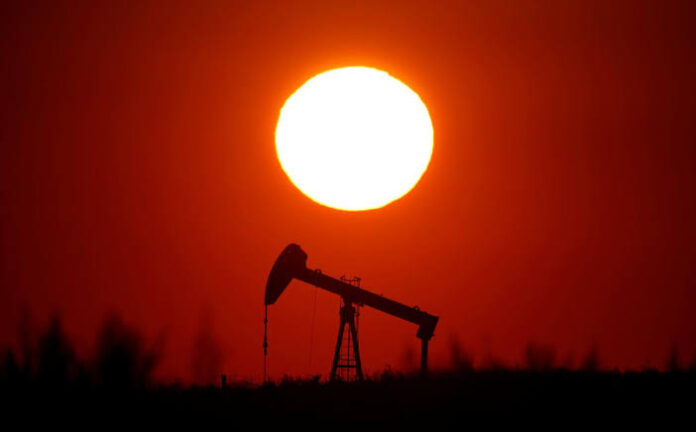LONDON: Oil prices clawed background on Tuesday on hopes for additional production cuts from OPEC and its allies to offset any potential demand drop triggered by the coronavirus outbreak.
Brent crude was up 28 cents, or 0.5pc, at $54.73 a barrel by 1442 GMT, while US West Texas Intermediate (WTI) crude stood at $50.64 after a 1.1pc rise of 53 cents.
The gains marked a rebound after an extended slide over the past two weeks on concern over the global economic impact of China’s coronavirus, which pushed crude prices on Monday to their lowest in more than a year.
Sources close to the matter told Reuters on Monday that OPEC+, comprising the Organization of the Petroleum Exporting Countries and allies including Russia, was considering cutting crude output by a further 500,000 barrels per day (bpd).
However, the producer group could yet face an uphill battle to rubber-stamp more cuts so soon after the existing pact was agreed and because there remains a lack of clarity over how long the virus crisis will last.
“Any changes in supply policy … will be decided on the basis of their assessment of the duration of the impact of the coronavirus,” the global head of commodity strategy at BNP Paribas, Harry Tchilinguirian, told the Reuters Global Oil Forum.
“If the producer group believes the outbreak to be contained, with effects tapering out after a short period, like SARS, they have the option to stand pat and weather the lower price environment until demand returns.”
BP finance chief Brian Gilvary told Reuters the economic slowdown brought on by the virus will reduce oil consumption for the whole year by 300,000 to 500,000 bpd, roughly 0.5pc of global demand.
“We will see how it plays out, but that will soften (demand),” he said. “If OPEC roll their cuts through the end of year, that should sweep up any excess supply and rebalance the market.”
Despite the return to calmer trading, mirroring other financial markets on Tuesday, Goldman Sachs warned that the virus outbreak’s impact on demand is likely to keep spot-price volatility elevated.
“Oil prices are now at levels where we would expect a supply response from both OPEC and shale producers, and where China would likely seek to build crude inventories,” Goldman said in a note.
























